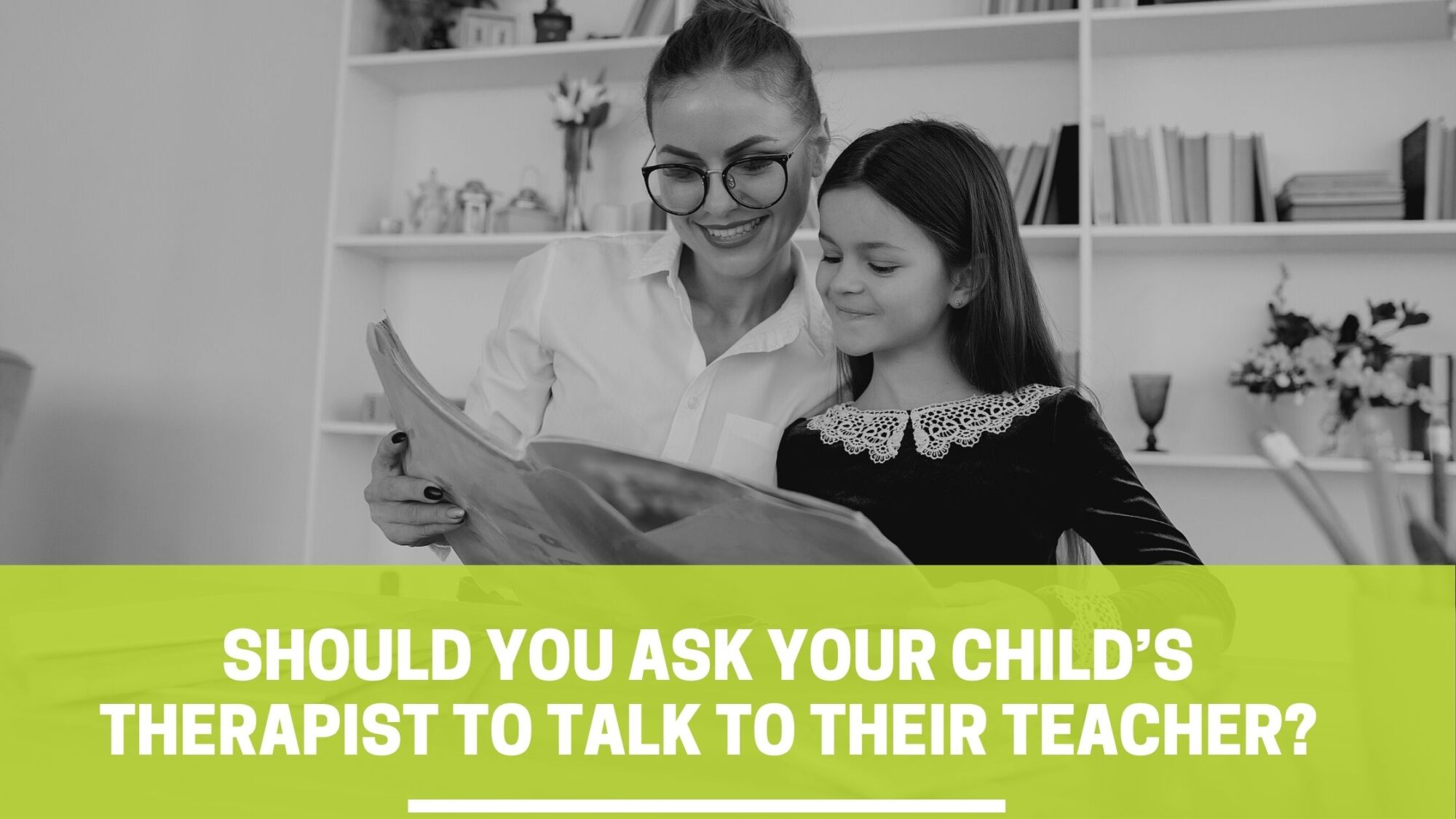You have seen your child’s behavioral and emotional regulation improve at home with their therapist’s support. With your help, your child is utilizing coping skills and more frequently communicating their needs.
How can you extend this progress into the classroom?
Should you ask your child’s therapist and their teacher to connect?
Will they be annoyed?
Will it be helpful?
Your Therapist & Teacher Will Thank You
Your child spends a large portion of their day at school interacting with their peers and teachers. Some teachers may feel hesitant to regularly relay difficulties and observations of challenges to parents. Due to this, you may not have the full picture of your child’s educational, emotional, or social growth at school. By opening the doors for communication, your child’s teacher can inform the therapist of their observations, including challenge areas and successes they have noticed.
In sessions, your therapist can use this information to support your child’s specific needs at school. Then your child and their therapist can work on recognizing triggers and problem areas. They can also utilize noted strengths to come up with a plan for optimal support.
On the classroom side, with better knowledge of your child’s distinct needs, their teacher will be more inclined to notice triggers and feel prepared when difficult situations arise. That way, the teacher can spend less time de-escalating situations and instead be preparing your child for success!
Providing Teachers with Tools and Language
Your therapist can also provide the school with a plan tailored to best meet your child’s emotional and body regulation needs in the classroom, it will mirror the same language you and your child are learning from your therapist. Having this consistency across all settings will reinforce the skills they are learning and increase the chances of long term success. Your child may also be more inclined to go to their teacher for help knowing they were included in the support plan.
For example, one of my clients is working on using their words, instead of their behavior, to express their needs. I was able to provide this child’s teacher with a list of “I-message” statements that can be used to prompt the child to advocate for themselves.
Another client of mine has difficulty recovering after arguments and holds excessive guilt for getting angry. By encouraging the teacher to allocate time to repair the situation by discussing what happened, my client was able to feel heard and release feelings of guilt that had been keeping them up at night.
How to Bridge the Gap
Talk to your child’s therapist. Let them know your concerns about your child’s time at school. Tell them your hopes for getting them involved. Your next step would be to fill out a release of information with your child’s therapist to allow for open communication between the two parties.
Make sure to stay connected after you open the lines of communication. A great way to do this is to create a group email with your child’s therapist and the appropriate school staff.
Remember, your child’s therapist is their advocate and wants to see them succeed in school. With your help, your child can begin to feel that everyone is on the same page, cheering them on in their progress.

